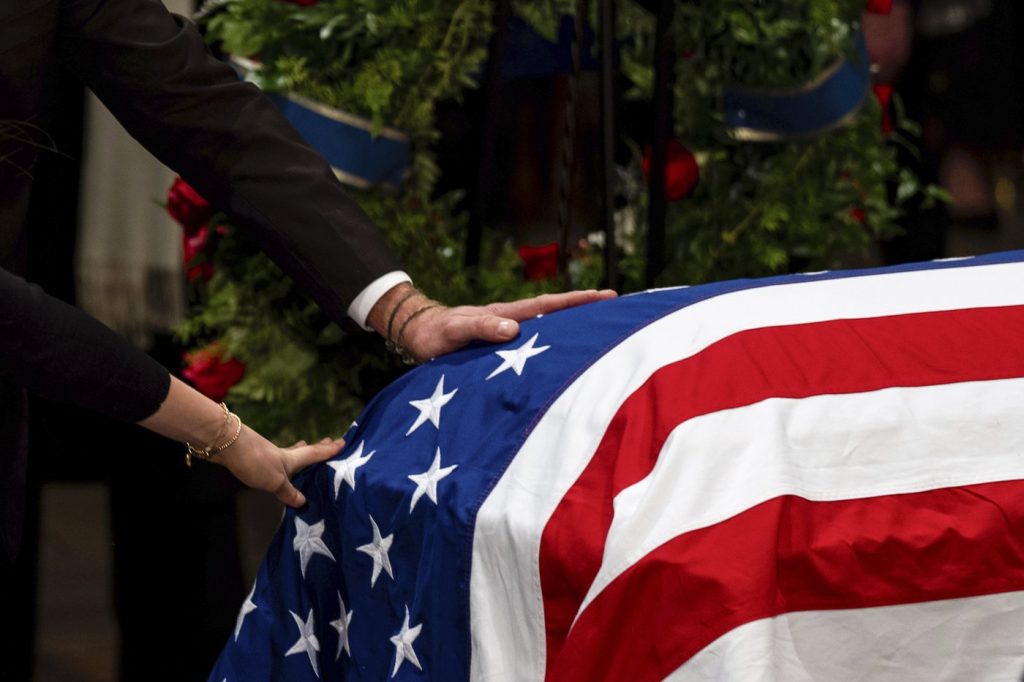President Jimmy Carter will lie in state in Washington, D.C., with his remains having arrived a day earlier as part of the state funeral proceedings. The 39th president of the United States, who served from 1977 to 1981, died on December 29, 2024, at the age of 100. His tenure was marked by significant challenges, including economic turmoil and international crises, which ultimately led to his defeat in the 1980 presidential election by Republican Ronald Reagan.
Carter's presidency is often reevaluated by historians, who have come to view his contributions and legacy more favorably than the voters did during his time in office. He was known for his profound religious faith and a lengthy commitment to public service that extended well beyond his political career. His humanitarian efforts were widely acknowledged and celebrated during a tribute held at the Capitol, attended by key political figures such as Vice President Kamala Harris and Speaker of the House Mike Johnson, who offered bipartisan remarks honoring Carter's legacy.
The ceremony took place in the Capitol Rotunda, where Carter's flag-draped casket rests atop the Lincoln catafalque, allowing the public to pay their respects until Thursday morning. Following this period of lying in state, a state funeral is scheduled for January 9, 2025, at Washington National Cathedral. President Joe Biden, a longtime ally of Carter, is expected to deliver the eulogy. Several former presidents, including President-elect Donald Trump, are also anticipated to attend the funeral.
After the ceremonial events in Washington, Carter and his family will return to Georgia aboard a Boeing 747, which is designated as Air Force One when a sitting president is on board. An invitation-only funeral service will take place at Maranatha Baptist Church in Plains, Georgia, the community where Carter taught Sunday School for many years after leaving the presidency. He will be interred next to his beloved wife, former First Lady Rosalynn Carter, in a family plot near the home they built together in 1962, where they lived most of their lives, aside from four years spent in the Georgia Governor's Mansion and four in the White House.
Throughout his life, Carter was not only recognized as a former president but also as a dedicated humanitarian and champion of peace. His legacy is characterized by a commitment to global health, democratic governance, and social justice. The upcoming memorial services reflect the deep respect and admiration held for him by the nation, underscoring his significant impact on American society and his lasting contributions to the world.











